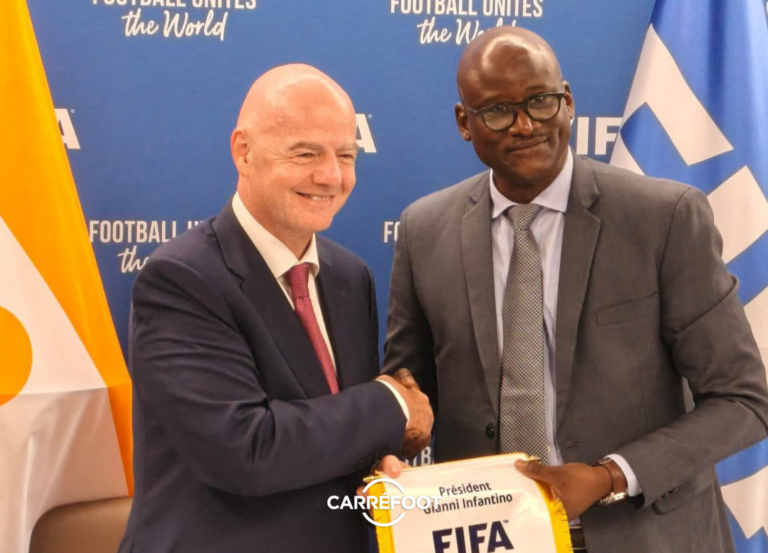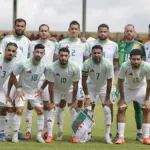Niger partners with FIFA to champion school football development

Niger has formalised a landmark partnership with FIFA aimed at promoting football in schools, signing a memorandum of understanding on Saturday, July 26, in Rabat, Morocco, as part of the global governing body’s “Football for Schools” pilot programme.
Selected alongside the Central African Republic to lead the initiative in Africa, Niger is set to become a testing ground for the integration of football into the school curriculum as an educational and developmental tool.
The signing took place at the newly inaugurated FIFA regional office for Africa in Rabat, symbolising a shared commitment to youth empowerment through sport.
The agreement was signed by Dr. Elisabeth Shérif, Niger’s Minister of National Education, Literacy and Language Promotion, and Sidi Mohamed Almahmoud, Minister of Youth and Sports.
They were joined by FIFA President Gianni Infantino and President of the Nigerien Football Federation (FENIFOOT), Issaka Adamou.
FIFA Council Member Colonel-Major Djibrilla Hima Hamidou was also in attendance, underlining the high-level backing for the project.
“The Nigerien experience will serve as a model for the rest of Africa,” Infantino declared, highlighting the significance of Niger’s role in shaping the future of school football across the continent.
The partnership places emphasis on using football to reinforce values such as teamwork, discipline, and inclusion within the education system.
The initiative outlines a structured programme, including dedicated training for physical education teachers and the integration of football-based learning materials across subjects.
It also aims to organise inter- and intra-school tournaments, while setting up mechanisms to assess the educational and social outcomes of the programme.
A central pillar of the project is the active promotion of girls’ participation in football, ensuring gender inclusion and equal access to sport.
This aspect reflects FIFA and Niger’s broader goal to foster equality and long-term social development through education.
According to the joint statement, the parties “express their desire to combine their efforts and strengthen their collaboration” to realise the full potential of this venture. Niger’s government officials described the initiative as one that “brings real opportunities for Nigerien youth,” recognising the transformative impact that sport can have in classrooms and communities.
With this accord, Niger positions itself at the forefront of educational sport innovation in Africa.
The collaboration not only strengthens ties between sport and schooling but also serves as a bold investment in the country’s human capital—building a generation that is educated, empowered, and united through football.




